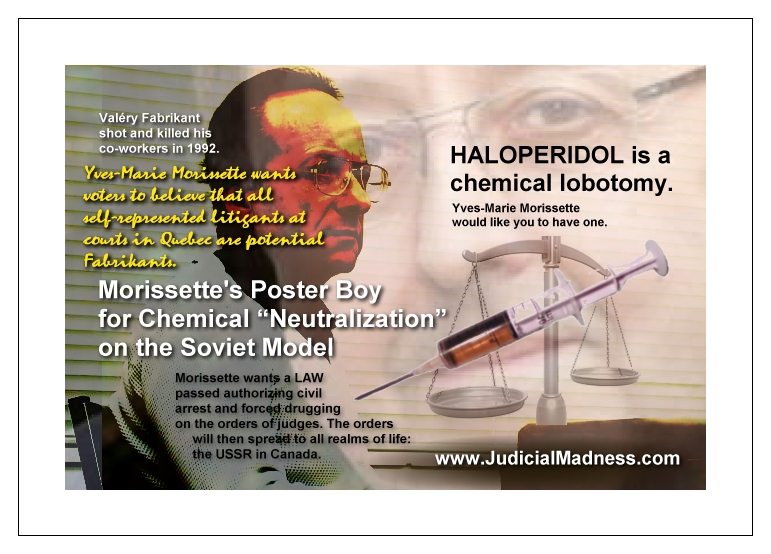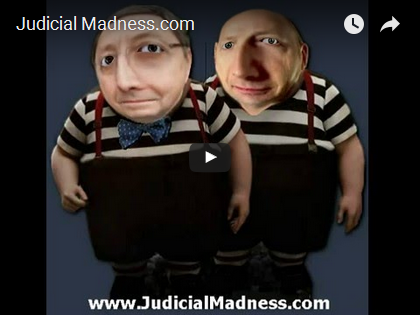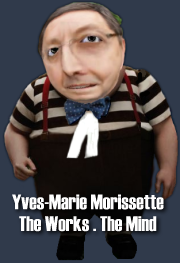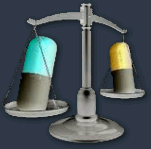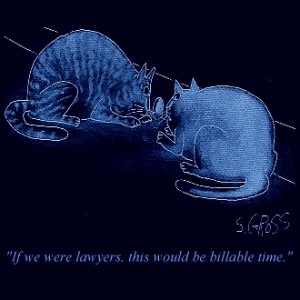Quérulent au Québec et au Dakota du Nord, mais pas au Massachusetts…
FEATURED GUEST ARTICLE
Querulous in Quebec and North Dakota,
but not in Massachusetts…
By “The Papillon Task Force”
La Commission Papillon - La carte cachée d’une faction corrompue du système de justice Québécois
The Papillon Task Force – The Hidden Card of a Corrupt Faction in the Quebec Justice System
|
Quérulent au Québec et au Dakota du Nord, mais pas au Massachusetts? |
Querulous in Quebec and North Dakota, but not in Massachusetts…? |
|
Après avoir affirmé que : 1) ceux qui se représentent seuls devant les tribunaux sont largement susceptibles de déposer des procédures abusives; 2) qu’à partir de ces procédures abusives il est possible de diagnostiquer la présence de l’atteinte psychiatrique de la quérulence; 3) que l’accès à la justice favorise le dépôt de plaintes déontologiques par les quérulents; et 4) que le remède au dépôt de ces procédures abusives serait un contrôle judiciaire préalable des procédures émanant des gens qui se représente seul, le juge MORISSETTE enchaine. |
After affirming that: 1) those who are self-represented before the courts are largely susceptible to filing abusive procedures; 2) that on the basis of these abusive procedures it is possible to diagnose the presence of the psychiatric malady of querulousness; 3) that access to justice facilitates the lodging of ethics complaints by the querulents; and 4) that the remedy for the filing of these abusive procedures would be prior judicial control of procedures emanating from self-represented persons, Judge MORISSETTE proceeds to make connections. |
|
Le savant juge affirme cette fois-ci qu’une personne qui se représente seule peut être saine d’esprit dans une société donnée tout en étant diagnostiquée atteinte de la pathologie psychiatrique qu’est la quérulence dans une autre. Ainsi, selon le juge MORISSETTE, le même psychiatre pourrait conclure à la présence de la paranoïa chez un patient qui évolue dans un environnement campagnard et ne rien déceler d’anormal chez le même individu s’il évoluait dans une métropole. Attention! Ce paradoxe ne trouve pas son explication dans le manque de qualification des psychiatres consultés. Il s’expliquerait par le nombre de litiges civils intentés par tranche de cent mille habitants dans une société donnée (mes soulignements) : |
The learned Judge then affirms that a person who represents himself can be sound of mind in a given society, all the while being diagnosed with the psychiatric pathology of querulousness in another. Thus, according to judge MORISSETTE, the same psychiatrist could conclude as to the presence of paranoia in a patient who evolves in a countryside environment and detect nothing abnormal in the same individual had he evolved in a metropolis. Warning! This paradox is not explained by the want of qualifications of the psychiatrists consulted. It would be explained by the number of civil litigations brought per slice of one hundred thousand inhabitants in a given society (my emphases): |
|
« Si à un extrême, le long d’un continuum, on trouve le plaideur quérulent qui inflige à autrui un feu nourri de recours abusifs, on trouve aussi à l’autre extrême des sociétés plus litigieuses que d’autres, des sociétés où le recours aux tribunaux sera nettement plus fréquent et se fera de manière nettement plus agressive qu’ailleurs : bref, des sociétés qu’on peut qualifier de litigieuses, dans lesquelles sera considéré comme normal et banal ce qui apparaîtrait intempestif et peut-être même abusif en un autre endroit. » |
“If at one extreme along a continuum one finds the querulous litigant who inflicts upon others a blazing inferno of abusive recourses, at the other extreme one finds societies that are more litigious than others, societies where recourse to the courts will be definitely more frequent and done in a way definitely more aggressive than elsewhere. In short, in societies one could describe as litigious, that which is normal and banal would appear inopportune and perhaps even abusive in another place.” |
|
Pour illustrer ses propos, le juge MORISSETTE mentionne que la proportion de poursuites en responsabilité civile per capita est trois fois plus élevée aux États-Unis qu’en Angleterre. À l’intérieur même des États-Unis, on peut observer de grands écarts dans le nombre de poursuites civiles déposées dans un état plutôt qu’un autre. Par exemple, il y aurait onze fois plus de poursuites civiles par tranche de 100 000 habitants dans l’État du Massachusetts (1 070,5) qu’il y en aurait dans l’État du Dakota du Nord (97,2). Ainsi, un individu qui se représente seul dans un État moins litigieux, comme celui du Dakota du Nord, serait plus susceptible d’être atteint de la pathologie psychiatrique de la quérulence que celui qui se représente seul dans l’État litigieux du Massachusetts.? |
To illustrate his remarks, Judge MORISSETTE mentions that the proportion of law suits in civil responsibility per capita is three times higher in the United States than in England. Even within the United States, one can observe wide variations in the number of civil law suits filed in one state versus another. For example, there would be eleven times more civil suits per slice of 100,000 inhabitants in the State of Massachusetts (1,070.5) than there would be in the State of North Dakota (97,2). Thus, an individual who represents himself in a less litigious State, like that of North Dakota, would be more likely to be afflicted by the psychiatric pathology of querulousness than whoever represents himself in the litigious State of Massachusetts.? |
|
Suivant le résonnement de l’honorable juge MORISSETTE, au Québec, la quérulence d’un individu ne serait pas déterminée en fonction de l’examen de son état psychiatrique, mais bien en fonction du type de société dans laquelle il évolue. Dès lors, comment concilier la thèse du juge MORISSETTE avec le fait qu’un plaideur quérulent est un individu atteint de paranoïa qui recherche une compensation financière pour des préjudices dits « imaginaires »? En d’autres mots, le juge MORISSETTE nous dit que dans une société litigieuse, les préjudices d’un plaideur qui se représente seul seront moins sujets à être imaginaires, alors que dans une société moins litigieuse, les mêmes préjudices le seront et feront de celui qui demande justice un paranoïaque quérulent. Cet illogisme à l’emporte-pièce n’a tout simplement aucune cohérence, ni en médecine, ni en droit. |
According to the “reasoning” of the Honourable Judge MORISSETTE, in Quebec, the querulousness of an individual would not be determined according to an examination of his psychiatric state, but according to the type of society in which he evolves. Consequently, how can one reconcile the thesis of Judge MORISSETTE with the fact that a querulous litigant is an individual afflicted with paranoia who seeks financial compensation for supposedly “imaginary” wrongs? In other words, judge MORISSETTE says to us that in a litigious society, the damages of a litigant who represents himself will be less prone to be imaginary, whereas in a less litigious society, the same damages are, thus they make a paranoid querulent of whoever seeks justice. This inconsistency with a punch quite simply has no basis either in medicine, or in law. |
|
Cela étant, avec un peu humilité et de rigueur intellectuelle monsieur le juge MORISSETTE, il faut admettre que la thèse selon laquelle des préjudicies imaginaires servent de fondement aux recours civils de ceux qui se représentent seuls ne tient plus. |
That being the case, with a little humility and intellectual rigor, Mister Justice MORISSETTE, it should be admitted that the theory according to which imaginary prejudice forms the basis of the civil recourses of those who represent themselves, no longer holds. |
|
Aux yeux du peuple néophyte en droit et en psychiatrie, une personne déclarée quérulente est une personne souffrant de paranoïa. Celui qui est visé par une déclaration de quérulence sera socialement isolé et sera sujet à la dépression. Il y a de forts risques qu’il perde son emploi et qu’il doive faire une faillite personnelle. Lorsque la déclaration de quérulence est utilisée par un magistrat corrompu, elle ne vise qu’à détourner les fins de la justice pour étouffer l’histoire de l’honnête citoyen qui était sur le point de faire détonner un scandale impliquant un ou plusieurs adeptes de la corruption judiciaire. On cherche à faire perdre toute crédibilité à l’honnête victime dans l’unique but de la rendre non crédible aux yeux de l’opinion publique. |
To the eyes of people who are neophytes in law and in psychiatry, a person declared a querulent is a person suffering from paranoia. Whoever is targeted by a declaration of querulousness will be socially isolated and prone to depression. There is every risk that he will lose his employment and have to file for personal bankruptcy. When the declaration of querulousness is used by a corrupted magistrate, its only objective is to circumvent the purposes of justice in order to hush up the story of the honest citizen who was about to detonate a scandal involving one or more of the practitioners of legal corruption. It aims at stripping the honest victim of any credibility with the sole purpose of making him noncredible in the eyes of public opinion. |
|
Cela étant, si les recours judiciaires des individus qui s’adressent seuls au tribunal pour demander compensation sont effectivement fondés sur des préjudices réels, il faut nécessairement se demander pourquoi un type de poursuite, plus qu’un autre, vaudra son auteur d’être déclaré quérulent dans un jugement rendu public. En faisant dans la supposition, il faut peut-être aussi se demander si le statut de la personne qui est poursuivie par celui qui se représente seule est susceptible d’influencer l’utilisation de la déclaration de quérulence par le magistrat qui, lui, doit se sortir indemne d’une situation qui risque d’éclabousser le monde judiciaire et politique.? |
That being said, if the legal recourses of individuals who address the courts alone to request compensation are indeed founded on real damages, it must necessarily be wondered why one type of law suit, more than another, will be worth its author’s being declared querulous in a public judgment. On this assumption, it should perhaps also be wondered whether the status of the person who is pursued by the self-representer is likely to influence the use of the declaration of querulousness by the magistrate who, himself, must emerge unscathed from a situation which is likely to be splashed across the legal and political world.? |
|
Corrélation entre le nombre de plaideurs quérulents et le nombre d’avocats per capita dans un État |
Correlation between the number of querulous litigants and the number of lawyers per capita in a State |
|
Après avoir mentionné que l’« on attribue souvent » à des facteurs culturels les le fait qu’une société soit plus litigieuse qu’une autre, le juge MORISSETTE fait état des variables qui peuvent influencer le nombre de litiges civils dans une société donnée (mes soulignements): |
After remarking that “one often attributes” to cultural factors the fact that one society is more litigious than another, Judge MORISSETTE reports on the variables which can influence the number of civil litigations in a given society (my emphases): |
|
|
|
|
On remarque que pour trois des sept variables qui expliquent qu’une société soit plus litigieuse qu’une autre, un lien de connexité est fait avec le nombre d’avocats qui y pratique. Les autres variables sont en lien avec les justiciables eux-mêmes, soit leur degré de scolarisation et le revenu moyen par ménage. Gardez en tête qu’il y aurait un lien entre le fait qu’une société soit litigieuse et le fait que ses citoyens se connaissent, j’y reviendrai dans quelques instants. |
One notices that for three of the seven variables which explain why one society is more litigious than another, a link of connexity is made with the number of lawyers who practice there. The other variables are linked to the parties themselves, which is to say, their level of schooling and their average household income. Keep in mind that there would be a link between the fact that a society is litigious and the fact that its citizens know each other, I will get back to that in a few moments. |
|
Pour ajouter au cynisme de son texte, le juge MORISSETTE précise que les constatations qu’il expose proviennent d’une étude qui, sur le plan empirique, n’est pas concluante. Par contre, précise-t-il, cette étude « fait ressortir des corrélations qui peuvent surprendre. » (mes soulignements) : |
To add to the cynicism of his text, Judge MORISSETTE points out that his observations are derived from a study which is not empirically conclusive. On the other hand, he qualifies, this study “emphasizes correlations which can be surprising.” (my emphases): |
|
« Ainsi, à taux d’accident égal, une société plus urbanisée, plus scolarisée et dont le revenu per capita est plus élevé sera plus litigieuse. Le litige, en quelque sorte, est un luxe, que tout le monde ne peut pas se payer et dont certains abusent. » |
“Thus, at an equal accident rate, a more urbanized and more educated society with a higher per capita income will be more litigious. Litigation, to some extent, is a luxury, to which not everyone can afford to treat himself, and which some misuse.” |
|
Je ne connais pas le taux de litiges civils par tranche de 100 000 habitants au Québec. Par contre, en combinant l’analyse du juge MORISSETTE aux données qui suivent, je suis enclin à dire que le Québec est une société litigieuse. Selon l’Organisation de Coopération et de Développement Économiques (OCDE), le Canada aurait la population la plus scolarisée au monde[1]. En 2010, 51% des Canadiens détenait un diplôme d’études supérieures et disposait d’un revenu moyen de 39 050$ per capita pour se classer 11e dans le monde à ce niveau[2]. En 2008, le Barreau du Québec comptait 22 500 membres juristes[3]. Toujours en 2008, plus d’une partie sur deux dans les dossiers judiciaires en droit de la famille se représentaient seules[4]. |
I don’t know the rate of civil litigations per slice of 100,000 inhabitants in Quebec. On the other hand, by combining the analysis of Judge MORISSETTE with the data which follow, I am inclined to say that Quebec is a litigious society. According to the Economic Cooperation and Development Organization (OECD), Canada has the most educated population in the world[1]. In 2010, 51% of Canadians held a diploma of higher learning and had an average income of $39,050 per capita, to be classed 11th in the world at this level[2]. In 2008, the Quebec Bar counted 22,500 lawyer members[3]. Still in the year 2008, more than one party out of two in the legal files in the family law division were self-represented[4]. |
|
Voici ce dont je comprends des explications du juge MORISSETTE. Les citoyens d’une société litigieuse comme celle du Québec connaissent leurs droits, car ils sont très éduqués. Ils sont aussi en moyen de faire valoir ces mêmes droits parce qu’ils disposent de moyens financiers plus considérables que ceux qui évoluent dans une société dite moins litigieuse. Dans les sociétés non litigieuses, les gens n’exercent pas leurs droits parce qu’ils n’en ont pas les moyens. Celui qui se représente seul dans cet environnement moins litigieux se doit d’être quérulent. Au Québec, par contre, vu le nombre d’avocats, notre taux de scolarisation et notre revenu disponible, il n’y aurait pas lieu de déclarer quérulents ceux qui se représentent seuls puisque, toujours selon les enseignements du juge MORISSETTE, nous évoluons dans une société dite litigieuse. |
Here is what I understand from Judge MORISSETTE’s explanations. The citizens of a litigious society like that of Quebec know their rights, because they are quite educated. They also have the means to take advantage of these rights because they have at their disposal considerably more financial means than those who evolve in a so-called less litigious society. In non-litigious societies, people do not exercise their rights because they do not have the means to do so. Whoever represents himself in this less litigious environment must be querulous. In Quebec, on the other hand, considering the number of lawyers, our rate of schooling and our available income, there would be no need to declare as querulous those who are self-represented since, and still according to the teachings of Judge MORISSETTE, we evolve in a so-called litigious society. |
|
En suivant le raisonnement du juge MORISSETTE, comment expliquer qu’il puisse y avoir autant de quérulents au Québec? Malgré le grand nombre d’avocats disponibles, se pourrait-il qu’une partie des individus qui se représentent seuls le fassent par obligation et non par choix? Serait-il possible que la nature délicate des dossiers et le statut des personnes poursuivies par ceux que l’on déclare quérulents puissent avoir fait reculer les avocats consultés préalablement au dépôt du recours civil « abusif » du soufrant déclaré quérulent par un juge sans compétence en psychiatrie? Chemin faisant, se pourrait-il que la déclaration de quérulence puisse être au service d’un but autre que celui de rendre justice? Si les avocats cherchent à fuir les dossiers qu’ils savent être trop dommageables pour leur propre carrière, peut-on supposer que celui qui osera s’attaquer seul contre les adeptes de la corruption judiciaire sera aussi celui qui sera déclaré quérulent pour étouffer sa cause et ne pas indemniser ses préjudices qui sont pourtant bels et biens réels? |
According to the reasoning of Judge MORISSETTE, how can it be explained that there can be so many querulents in Quebec? In spite of the great number of lawyers available, could it be that some of the individuals who represent themselves do so out of necessity and not by choice? Is it be possible that the delicate nature of the files and the status of the people pursued by those who are declared querulous can have caused the retreat of lawyers consulted prior to filing of the “abusive” civil recourse by someone declared to be suffering from querulousness by a judge with no competency in psychiatry? While we are on the way, might the declaration of querulousness serve a goal other than that of rendering justice? If lawyers seek to flee files which they know can be too detrimental to their own careers, can one suppose that whoever dares the attack on his own against the experts at legal corruption will also be the one declared querulous to silence his cause so as not to compensate his damages which are, however, most assuredly genuine? |
|
Rappelons-nous que dès le début de son texte, le juge Morissette nous informait sur le traitement pharmacologique utilisé pour soigner les quérulents diagnostiqués par la magistrature. Des antipsychotiques tels l’haloperidol et le pimozide allaient guérir les souffrants. Pourtant, un peu plus loin dans son article aux apparences scientifiques, ce même juge Morissette nous apprenait par la suite que l’état de quérulence d’un sujet n’était pas lié à sa condition psychiatrique, mais bien au type de société dans laquelle il évoluait. C’est ce même juge qui rend des arrêts dans certaines causes qui se retrouvent devant la Cour d’appel du Québec et qui enseigne le droit à l’Université McGill à Montréal. Il est aussi à noter que la très grande majorité des jugements déclarant un individu quérulent au Québec s’appuie sur les enseignements de l’honorable Yves-Marie MORISSETTE. |
Remember that from the beginning of his text, Judge Morissette informed us of the pharmacological treatment used to cure querulents diagnosed by the magistrature. Antipsychotics such as haloperidol and pimozide will cure the sufferers. However, a bit further in his scientific-looking article, this same Judge Morissette then advises us that the state of querulousness of a subject is unrelated to his psychiatric condition, but to the type of society in which he has evolved. This is this same judge who hands down rulings in certain cases which come before the Quebec Court of Appeal and who teaches law at McGill University in Montreal. It must also be noted that the very great majority of judgments declaring an individual querulous in Quebec are based on the teachings of the Honourable Yves-Marie MORISSETTE. |

